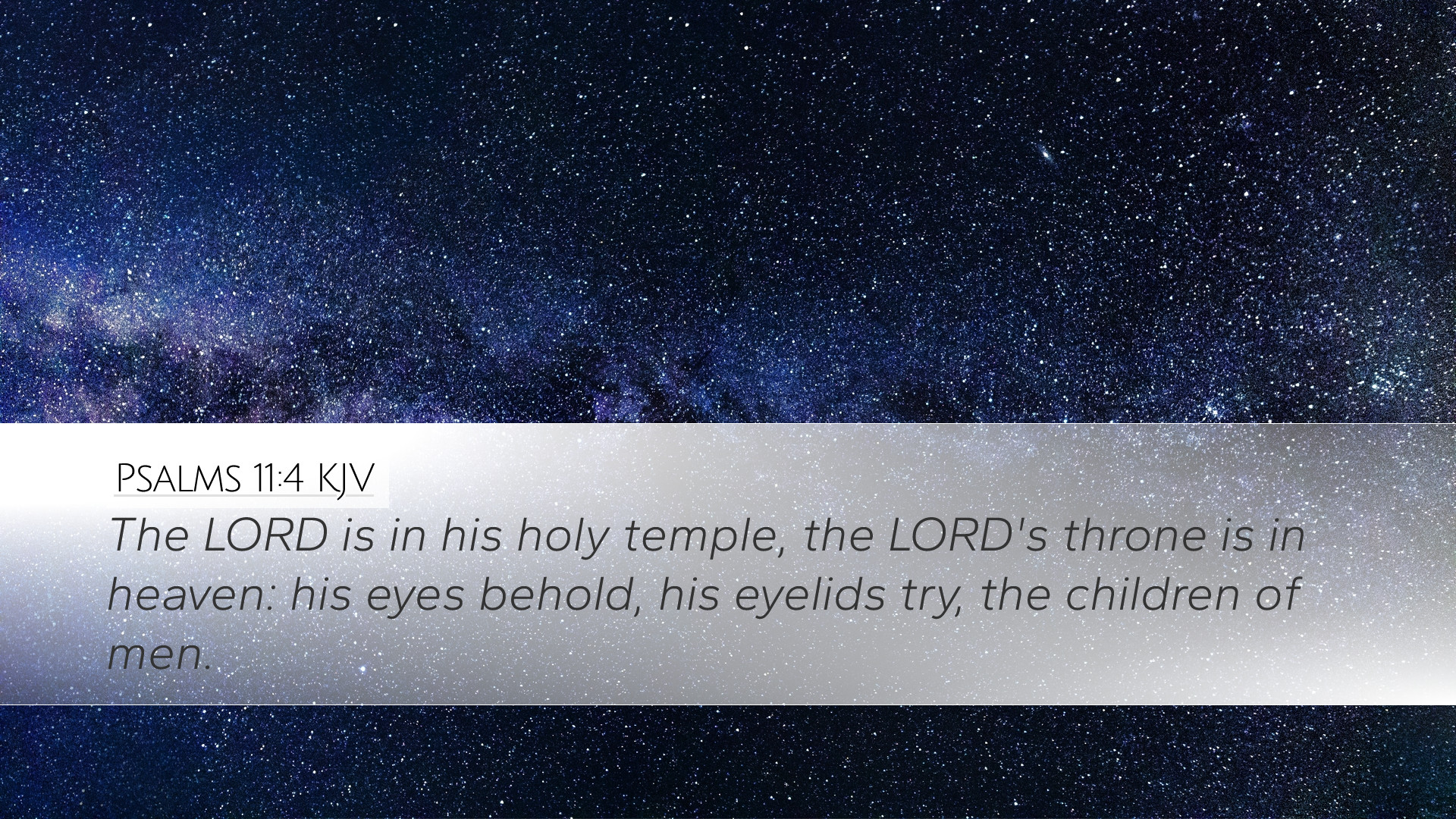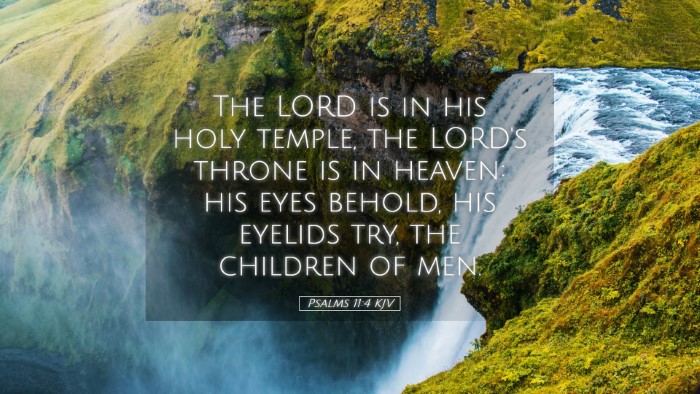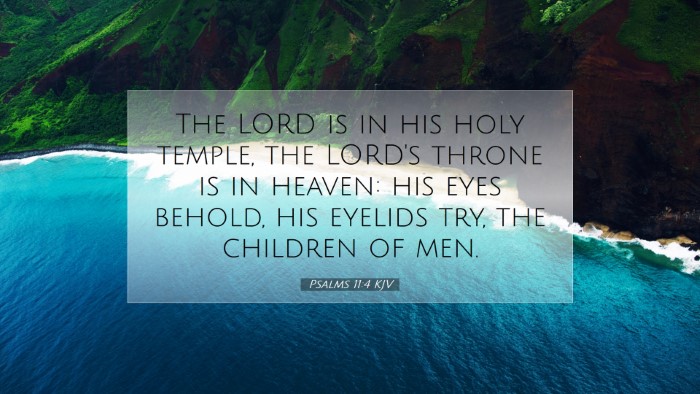Commentary on Psalms 11:4
Bible Verse: Psalms 11:4 - "The Lord is in his holy temple; the Lord's throne is in heaven: his eyes behold, his eyelids try, the children of men."
Introduction
This verse serves as a profound reminder of the omnipotence and holiness of God. In an age often plagued by uncertainty and moral ambiguity, the psalmist offers a solid foundation for faith, drawing attention to the majesty of God's throne and His intimate awareness of human actions. This commentary explores insights from various public domain sources to deepen our understanding of this verse's theological implications.
Theological Insights
1. The Location of God's Throne
The psalmist begins with an affirmation of God’s presence and sovereignty: "The Lord is in his holy temple; the Lord's throne is in heaven." According to Matthew Henry, this declaration underscores the distinction between divine authority and human frailty. The temple signifies the sanctity and holiness of God, while heaven represents His ultimate reign over all creation. This verse shears away the distractions of earthly powers, reminding believers that God alone holds authority, even amidst trials.
2. The Omniscience of God
Continuing in the verse, we see, "His eyes behold, his eyelids try, the children of men." Albert Barnes emphasizes that God's omniscience is not merely passive observation but an active engagement with humanity. God's "eyes" symbolize His vigilance, while "eyelids try" suggests a discerning judgment. This implies that God does not overlook human behavior; rather, He examines the hearts and actions of all individuals. This can be a source of comfort and challenge for believers, knowing that their lives are under divine scrutiny, urging them towards righteous living.
- God Sees All: The omnipresence of God reminds us that He is aware of every act, thought, and intention.
- Judgment: God’s role as a judge reinforces the moral obligation of humanity, calling forth accountability.
- Hope for the Righteous: For the faithful, this truth offers assurance that God is attentive to their struggles and upholds them under divine justice.
Contextual Analysis
1. The Setting of the Psalm
Psalms 11 is set against a backdrop of turmoil, adversity, and fundamental questions concerning justice and divine protection. As Adam Clarke notes, David penned this psalm in a time of distress, where enemies conspired against him. It is in such a context that he declares the assurance of God’s sovereignty and awareness.
2. The Contrast of Trust
This psalm posits a stark contrast between the counsel of the wicked, urging the Psalmist to flee from danger, and the trust placed in God’s steadfast presence. Verses leading up to verse 4 emphasize the panic of deceitful counsel, which stands in opposition to the unwavering stability that faith in God provides.
Practical Applications
1. Assurance in Crisis
The assertion of God’s throne in heaven serves as a reminder for believers facing modern-day challenges. As Matthew Henry articulates, the Christian faith is anchored in the belief that God is unmoved by temporal struggles. This truth can instill confidence when facing personal trials or societal instability.
2. Ethical Living
The knowledge that God observes our actions provides a primary motivation for ethical behavior. Albert Barnes posits that the awareness of divine scrutiny should lead believers toward integrity and righteousness, fostering a community defined by honesty, compassion, and moral fortitude.
- Encouragement to Pray: Knowing God hears and watches encourages believers to communicate with Him authentically.
- Call to Accountability: Maintains a sense of personal responsibility in moral and spiritual conduct.
- Ground for Worship: The reality of God's holiness and omniscience inspires worship and reverence in the life of a believer.
The Invitation of Faith
Psalms 11:4 calls each reader to a deeper trust in God, particularly in challenging conditions. It envisions a God who is not merely an abstract concept but an active participant in the fabric of human life. With His holy temple as a constant reminder, believers are invited to approach God with the assurance that His eyes are ever upon them, scrutinizing their hearts and guiding their paths.
Conclusion
In summary, Psalms 11:4 encapsulates the essence of God’s majesty, omnipresence, and intimate knowledge of humanity. The combined insights from Matthew Henry, Albert Barnes, and Adam Clarke reveal a multifaceted understanding that serves not only as theological edification but also as practical wisdom. The psalmist's words resonate across time, encouraging believers to find solace and strength in God’s unchanging nature amidst the shifting sands of life.


